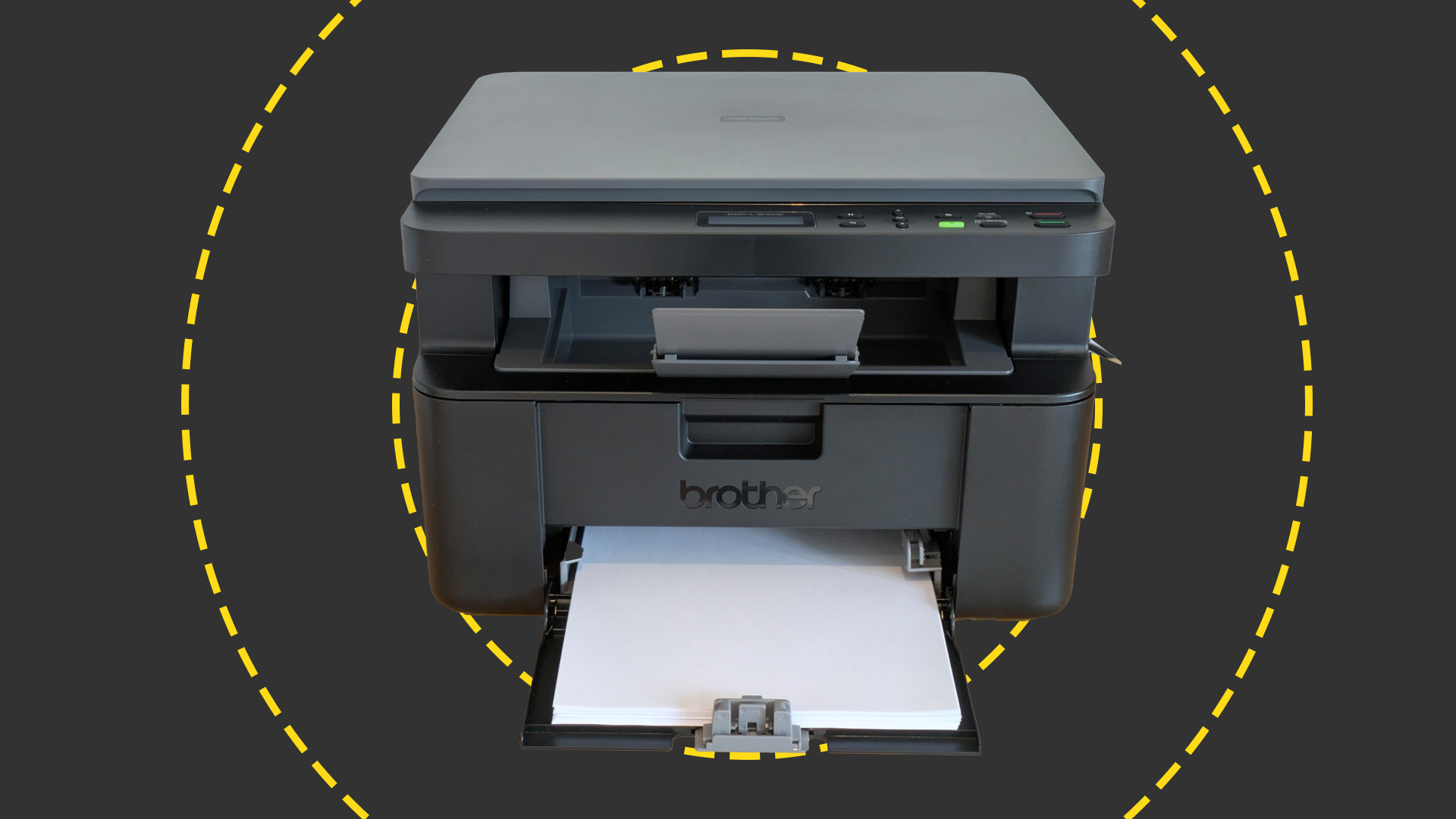Girl Scouts USA: Changing the world one cookie at a time
There's more to Girl Scouts than just selling cookies. And it starts and ends with the right cloud-based technologies...


The idea of girl scouts is synonymous with doing good, gaining badges and selling cookies. But there is so much more to the not-for-profit organisation.
In fact, the Girl Scouts USA, has its eye on the prize of becoming the web-based equivalent of WebMD when it comes to helping children and parents navigate the maze of issues relating to female youth issues.
Cloud Pro was fortunate enough to catch up with Girl Scouts USA's chief operating offer Tony Doye during Salesforce's Dreamforce event this week to find out more about what the organisation is doing and what it's hoping to achieve
"We're changing our brand to make us more relevant. It's not all about cookies, it's about the girl experience," he says.
"The real value is in what we bring to young women, that sustains them for life. We are building the pipeline for women of purpose. It's not all about becoming the CEO or a congresswoman, it's about purpose in life. Whether it's to do with a small business or a community or whatever else. We really give them skills they can't get anywhere else."
And it all starts with Salesforce.
"I showed the board my vision and they said I needed to get on with it! So I'm going to be leaning more towards our 2020 vision. Project 2020 is an ambitious project to double the number of girl scout members (to four million) and engage 15 million alumni. Our strategy right now is all about what we're doing with Salesforce. I'm thinking what do I need in 2020 and how do I work back?"
Sign up today and you will receive a free copy of our Future Focus 2025 report - the leading guidance on AI, cybersecurity and other IT challenges as per 700+ senior executives
"We need girls, we need STEM. And Girl Scouts [can help provide those skills]," Doye said, before adding that some of the girl scouts have gone on to do amazing things, including but not limited to a robotic hand that was patented by the medical sector.
Doye joined the organisation part way through its Salesforce implementation and he's very honest about what he found when he arrived four months into the project.
Ultimately though, for Girl Scouts USA, and for Doye's predecessors, it was a choice between not moving to modernise at all or just getting on with it. Instead of the waterfall approach, it was a case of "go and we'll think about the issues later," according to Doye. That was a conscious choice - one he had to remind the powers that be about occasionally - but one that also meant things did not always go smoothly. However, the benefits far outweighed the risks and downsides.
Getting the local councils ready to move can take up to 10 months due to the varying levels of appetite for change and tech literacy, according to Doye. And, in the early days of the roll-out, data conversion error rates stood at 10-20%, now they are less than 1% and it's not unheard of to have 100% clean data.
Doye describes the future of the scouts like a daisy. At its core lies digital asset management, with multiple petals all branching off creating streams of interests or revenue for the organisation.
"Out of this daisy, this is what parent's need, this is what girls need, this is the girl programme, this is what the volunteer needs, this is what the council needs, this is what we're going to do for the community. Then it's about sponsors, investors and alumni.
"Finally it's the G.I.R.L piece. This is the authority. So the DAM (digital asset management) is the glue and we work everything else around this. So we take this glue and move onto the petals. First, we're going to go for volunteers. Because you can't get the girls without the volunteers," Doye explains.
Salesforce will help Girl Scouts USA better attract and retain volunteers and members as well as better matching the former to the local needs of the latter. Paper-based methods and traditional ways of marketing and record-keeping will be replaced with cloud-based technology that is a better fit for the modern face of the organisation.
"There are 12 million girl scouts in the world. In the US, we're the largest, but we need to modernise, accelerate and be more agile," Doye says.
"We are 104 years old and have a great history and principles but we're now looking at how we can change to [be more relevant] to this generation of mums and girls. And how do we engage with underprivileged and underserved communities?"
When it comes to adoption and changing people's perception to get buy-in on the technological changes required, it's existing users who have helped convince the rest - the luddites as some might call them - according to Doye.
"The biggest successes have not been at national level, it's with the early adopters... There's been a collegiate approach to helping one another. They tend to listen more to another council. Particularly when they say they got through it and they're seeing the benefits, or even if they say it was really tough but they can see the benefits," Doye adds.
Girl Scouts is an institution. One with great values and great heritage. But that legacy in itself can become a burden in the face of modernisation, says Doye.
"One of our challenges is the 'sea of sameness' and a lot of people throwing money at 'girl' - how do we get noticed? It's all down to the website. We don't have money for big marketing campaigns..." he says.
That said, Girl Scouts has just partnered with Disney on a campaign to try and raise awareness of what it can offer and the power of being more community and soft-skill focused.
That campaign - Elena of Avalor - focused on leadership and achievement and tried to send home the message to young girls that they can do anything.
"Since 1912, Girl Scouts has proudly fostered a tradition of excellence that prepares girls, with the support of their families, to boldly take the lead in their lives in the ‘Girl’ Scout way,” says Sylvia Acevedo, interim CEO of Girl Scouts of the USA.
“Recognising that leadership development for youth begins early-on, we are particularly excited to work with Disney Channel on this collaboration tied to Elena of Avalor, a wonderfully innovative programme that emphasises the importance of embracing the mantle of leadership to a new generation. Because, as we say at Girl Scouts, 'If the world needs more leaders, then we need more Girl Scouts!'”
Nancy Kanter, executive vice president of original programming and general manager at Disney Junior Worldwide, adds: "As we launch Elena of Avalor on Disney Channel, nothing is more important to us than using the impact that we know television has on our audience to showcase strong, ambitious role models for young girls.
"Our work with [Girl Scouts USA] will give us the chance to amplify that message and be a part of the largest community of young female leaders, by providing materials and inspiration that demonstrate every girl has the power to lead."
Cognitive capabilities will be a big focus for Girl Scouts USA going forward. The ability to match volunteer skill sets and availability, for example, will really help align supply with demand.
"[I've not really explored Einstein just yet], but with IBM Watson, for example, what you could do is match profiles. It could be a 35-year-old mother who has volunteered before, whose daughter is a girl scout, who has written a paper on engineering. Then you can target them, whether they're a volunteer or a mentor and whatever hours they can offer. Suddenly, you have that [insight] content.
"Salefsorce provides that base infrastructure for us. Now we have to work out how we leverage the data we've got, the Marketing Cloud... Salesforce provides us with the tech-savvy business process environment with one source of data. And now we can layer on top of that."
Going forward, the organisation has bold ambitions that outlie its 2020 focus.
"We will have all of the artefacts (CVs and so on) that we won't necessarily create, we'll just curate. We will have information like TED talks and so on curated. So, now, the volunteer becomes like the soccer coach. They're not necessarily going to be the soccer expert, but they order the kit, book the field, collect the flags when the game's over... and [for anything else they call in specialists].
For Doye, it goes so much more beyond that though.
"Think of WebMD. We want to be G.I.R.L MD. That stands for go getters, innovators, risk takers and leaders. Think of us as the authority. Where parents go ... Then we can monetise that and it becomes a really rich environment. Now, you're looking at a completely different business model."
Doye is keen to stress that, despite a focus on modernisation, Girl Scouts USA is all about being an enabler and an enhancement to the outdoor learning experiences girls already get through the various initiatives. The digital focus is intended to complement rather than replace that.
It's an exciting time of transformation in 2016 for an organisation that was founded in 1912 in Georgia. But, with an appetite for the right technologies and a vision for change at its helm, there's a real sense of confidence it's on the right course.
Maggie has been a journalist since 1999, starting her career as an editorial assistant on then-weekly magazine Computing, before working her way up to senior reporter level. In 2006, just weeks before ITPro was launched, Maggie joined Dennis Publishing as a reporter. Having worked her way up to editor of ITPro, she was appointed group editor of CloudPro and ITPro in April 2012. She became the editorial director and took responsibility for ChannelPro, in 2016.
Her areas of particular interest, aside from cloud, include management and C-level issues, the business value of technology, green and environmental issues and careers to name but a few.
-
 Can the ‘microshifting’ trend work in the tech sector?
Can the ‘microshifting’ trend work in the tech sector?In-depth Research shows that employees want to break up their working days into short, flexible blocks – here’s how tech leaders can implement what’s being coined as ‘microshifting’
-
 Brother DCP-L1640W review
Brother DCP-L1640W reviewReviews This compact mono laser multifunction looks perfect for home workers, but is its appeal more than skin-deep?
